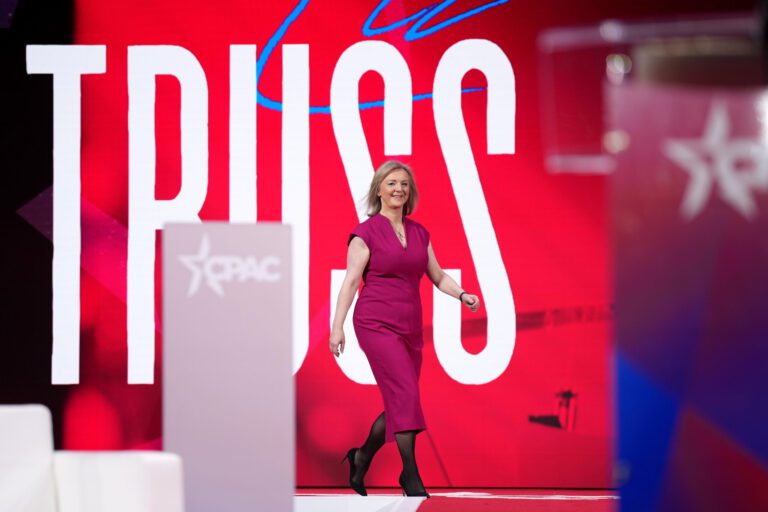Liz Truss: The Anti-Establishment Visionary Shaping Britain’s Future
In a recent interview on The New York Sun’s “Sanity” podcast, former Prime Minister Liz Truss expressed her ambitions to pivot Britain towards a more right-leaning governance, despite her 49-day tenure marking the shortest in British history. Truss identifies herself as “anti-establishment,” a label that underscores her belief in the need for significant political and institutional reform.
The Liberal Capture of British Institutions
Truss argues that liberal politics have infiltrated and captured vital British institutions. She traces this shift back to former Prime Minister Tony Blair, whose reforms dramatically altered Britain’s judicial and bureaucratic systems. According to Truss, when the Conservative Party regained power in 2010, they missed a crucial opportunity to reverse Blair’s transformative policies.
Key Points:
- Tony Blair’s Reforms: Restructured Britain’s institutions.
- Missed Opportunities: Conservatives failed to challenge the status quo when they had the chance.
- Current State: A left-wing system dominant in key sectors, including the Bank of England and the judiciary.
A New Direction: Tax Cuts and Deregulation
When Truss assumed office in 2022, she proposed a bold growth agenda characterized by tax cuts and deregulation. Her approach received support from American think tanks like the Heritage Foundation and the American Enterprise Institute, who lauded her commitment to free-market principles. However, resistance came from within her own party.
Why the Resistance?
- Conservatives’ Reluctance: Many party members preferred to align with liberal orthodoxy and feared losing favor among elite circles.
- Career Concerns: A desire for lucrative positions in the corporate world after leaving office contributed to their hesitance.
Quote:
“And why is that? Because they wanted to go along with the left-wing orthodoxy.”
The Call for a Counter-Revolution
Truss posits that a significant public discontent is brewing, signaling a potential counter-revolution against Blair-era politics. She notes that both major political parties are struggling in the polls, reflecting the citizens’ frustration with the current governance model.
Necessary Reforms:
To enact real change, Truss insists on the repeal of the Human Rights Act and making the judiciary more accountable. These steps, she argues, are crucial for dismantling the entrenched “Blair-ite state.”
Quote:
“Unless you repeal the Human Rights Act… you’re not actually going to be able to do anything.”
The Road to the 2029 General Election
As the 2029 general election approaches, Truss emphasizes the importance of a proactive stance against entrenched bureaucracy and legacy laws. She asserts that any incoming government must decide to challenge the existing system from Day One, or risk being overwhelmed by it.
Key Takeaway:
- Decisive Action Needed: New leadership must prioritize dismantling Blair-era legislation and bureaucracy.
Lessons from Donald Trump
Truss draws parallels between her experiences and those of Donald Trump, who faced similar bureaucratic pushback during his presidency. She highlights that understanding and confronting institutional resistance is crucial for any leader aiming for transformative change.
Quote:
“Donald Trump probably understands this better than anyone because he faced it in 2016.”
Conclusion: A Vision for the Future
Liz Truss’s commitment to an anti-establishment agenda reflects her belief in the necessity of systemic change in British politics. As the country navigates political upheaval, her insights and strategies could serve as a blueprint for future leaders. The conversation about reforming institutional biases continues, and as public dissatisfaction mounts, a pivotal moment in British politics may be on the horizon.
For those interested in learning more about the impact of political reforms, visit Heritage Foundation or explore the insights from the American Enterprise Institute.


